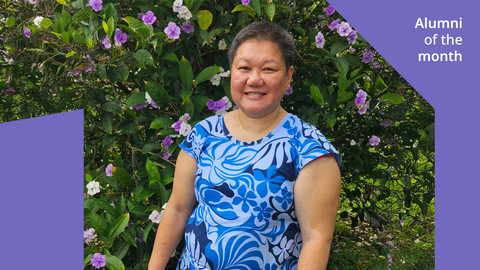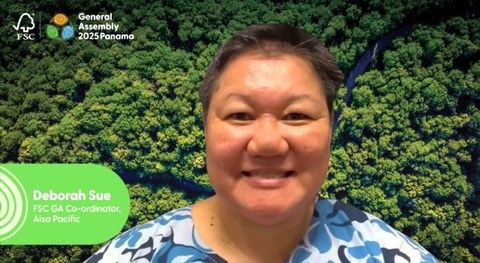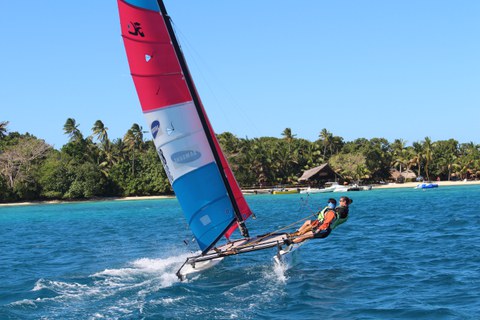Oct 30, 2025
“Be open-minded in life! And never stop learning!”

Deborah Sue is the Alumna of the Month for November 2025.
(interview from 2025)
Thomas Scheufler
“Applying the solid forestry fundamentals I acquired at TU Dresden has shown me areas of activity in my professional career that need to be addressed in order to combat climate change and biodiversity loss with forestry-based solutions.”
After completing her Bachelor's degree in Australia, Deborah Sue completed a Master's degree in Tropical Forestry and Management at TU Dresden. Upon her return to Fiji, she founded the consulting agency Ridge to Reef Management and now advises companies and NGOs in the Asia-Pacific region on the responsible and sustainable management of tropical forests.
|
Profile of |
Ms. Deborah Sue |
|
Degree program |
MSc – Tropical Forestry and Management |
|
Faculty |
Department of Forest Sciences |
|
Studienzeit |
Oct 2001 – Dec 2003 |
|
Current activity |
International Forestry Consultant with Ridge to Reef Management |
Where are you employed today, and what are your responsibilities?
I established my own very small consultancy service, Ridge to Reef Management; and I work locally in Fiji as well as internationally. As a consultant, I am able to undertake a wide range of jobs such as providing guidance to a Fiji national-level plantation company in their pursuit of forest management certification with the Forest Stewardship Council (FSC); and for the FSC, I am the FSC Asia-Pacific Members Coordinator for their General Assembly. I am also seeking opportunities to develop forest therapy (aka intentional forest-based recreational activities) as a way to foster an appreciation of forests and nature, and thus, create the foundations for a forest-based bioeconomy.

Deborah Sue works as a coordinator for the Forest Stewardship Council.
What do you still benefit from today/would you have liked more?
I would love to have the German forestry concepts I gained 20+ years ago updated with the new components that I see in the current curriculum, such as managing ecosystems services, forest governance, urban forestry, forest sites and catchment hydrology.
Why did you decide to study at TU Dresden?
The Masters degree program titled “Tropical Forestry and Management” appealed to me the most, as I am from a tropical country and interested in forest management. It was also a course for which I could get a DAAD scholarship for, which was crucial for my participation from a developing country.
What factors drove you to choose your field of study?
I already had a Bachelor of Science from Australia with majors in marine biology, wildlife biology and conservation biology, and thought (naively) at the time that a forestry industry should also have funds for conservation work. Nowadays, it is still a struggle for the private sector to invest in seemingly long-term intangible benefits.
Who from research and teaching influenced you the most during your studies?
Of course, it was Professor Pretzsch who had the most influence, especially as he was also my thesis supervisor.
What advice would you give to today's first-year students?
Be open-minded in life and about how forestry concepts can be applied in many situations. Most importantly, never stop learning.
What do you remember most fondly from your student days?
The relationships with other international students and especially Germans. Getting to know Germans and their culture was not easy but the relationships were all the more rewarding.
Where was your favorite place at university?
The forest walk up / down to / from Professor Pretzsch’s office!
How do you manage a good career start in your industry?
This has been and still continues to be a huge struggle. The key is to find people/places where one’s skills, knowledge and expertise is appreciated, and to never give up.

Deborah Sue windsurfing towards Leleuvia Island.
What connects you with TU Dresden today?
With TU Dresden, I would like to explore potential research projects that foster relationships between Germany and Fiji. For example, developing parameters for assessing the restoration of forest ecosystems services (water, biodiversity, carbon, and soil) and also exploring the value of forest therapy (aka intentional forest-based recreational activities) in fostering an appreciation of nature. Additionally, I look forward to sending other Fiji forestry students to Tharandt.
Contact:
Deborah Sue
